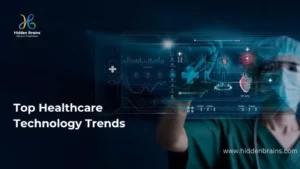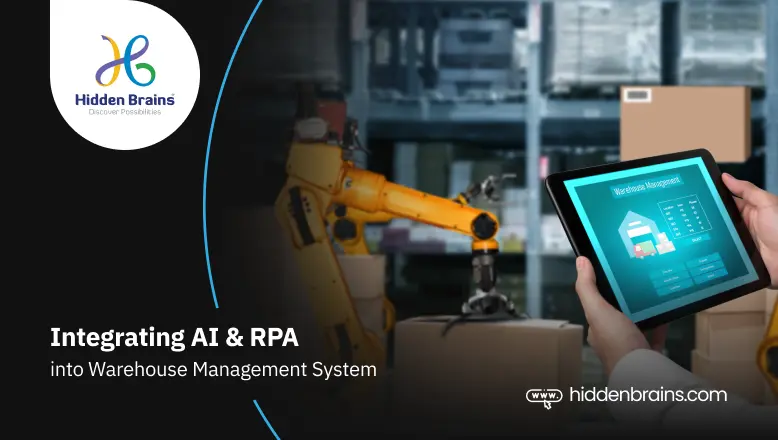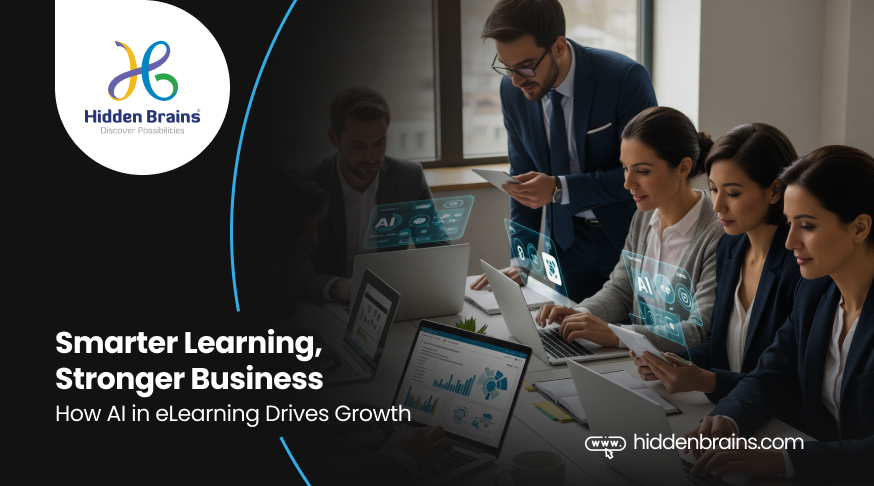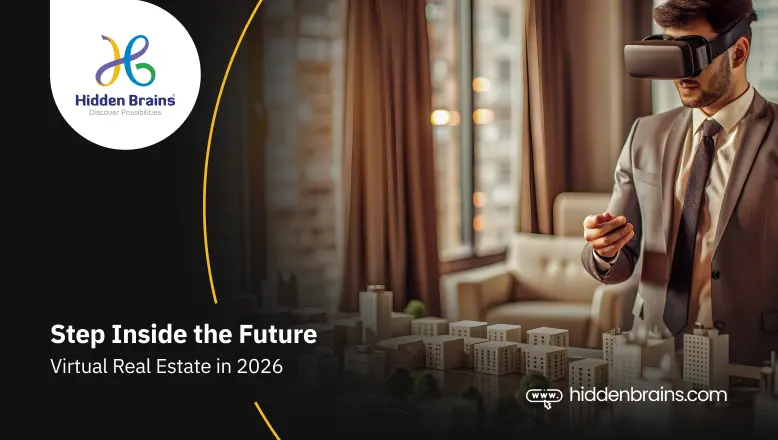Summary
This blog examines key healthcare technology trends including AI for improved diagnosis and drug discovery, VR/AR for medical education and treatment, IoMT (Internet of Medical Things) for remote patient monitoring, and digital health transformation. It explores how these emerging technologies are revolutionizing healthcare delivery, enhancing patient outcomes, and addressing challenges in data security and interoperability.
Being a healthcare service provider you always wanted to stay updated with the top healthcare technology trends in 2025 to deliver better care and optimize healthcare operations.
But after 2020, the healthcare industry is constantly evolving without showing any sign of slowing down. With the widespread adoption of top technologies in healthcare in 2025 like wearable health devices, and medical robotics, businesses need to keep an eye on the latest healthcare technology trends that further help businesses to expand their business and improve patient care.
However, the main question is what are the top healthcare technology trends in 2025 you need to look for?
From AI-powered surgeons to remote patient monitoring, and tailored medicine delivery to 3D-Bioprinting, we have combined various top healthcare technology trends in 2025 that are poised to define the future of healthcare in the coming few years.
Looking for innovative Healthcare IT Solutions? Hire us for cutting-edge technology, seamless integration, and optimized workflows!
So before you look forward to hiring mobile app developers to start revamping your healthcare solutions, let’s take an in-depth overview of the healthcare IT market.
Overview of Healthcare IT Market Stats That You Need To Be Aware Of
Many healthcare organizations are still in dilemma as to whether they actually need to embrace this change in their healthcare deliveries and rely on traditional machines and working models. If you’re also one of those healthcare institutions, then you need to check these eye-opening healthcare IT market stats.
- As per the market survey, Healthcare IT Market is expected to be $390.7 Billion by 2024 and is growing at a faster rate than the GDP of most countries.
- It costs nearly $250 Billion to process 30 Billion healthcare transactions each year.
- The Healthcare expenditures for the U.S are projected to be $5.4 Trillion by 2024 representing an average annual rate of 19.6% of GDP.
Undoubtedly these figures are portraying a progressive picture of the Healthcare IT industry which will be integrated and influenced by all the top healthcare technology trends in 2025.
While the industry continues to contemplate, therefore keeping your healthcare organization updated with all the latest healthcare trends in 2025 has been an urgent need for organizations.
Let’s watch the quick video to know “Top Healthcare Technology Trends in 2025″
Top Healthcare Technology Trends
If you’re all set to take your healthcare organization to the next level, then let’s jump on the list of emerging trends in the healthcare industry.
Top Healthcare Technology Trends in 2025
The healthcare industry is burgeoning and it’s an alarming time for healthcare service providers to realize the change and pace up their operations by implementing the right healthcare technologies and trends.
In that case, you can look for top healthcare IT solutions but before you consider implementing the technology into the healthcare solution, it is worth evaluating its logic with the healthcare industry, its benefits, and challenges.
So let’s get started with the top technology trends in healthcare in 2025…
1. Internet of Things (IoT)
Have you been trying hard to gather patient data and keep a real-time track of chronic diseases with all those traditional methods? If yes, then it’s time to integrate IoT technology into your healthcare solutions.
“In 2026, it is expected that the number of IoT mobile connections globally will be doubled from 2021.”
Though healthcare is changing in major ways, therefore, Internet of Things (IoT) is emerging as a top healthcare technology trend in 2025 and rapidly becoming a primary means of recording patient information in the future.
Using the capabilities of IoT-powered interconnected devices, digital healthcare applications can now let patients schedule their appointments without having to call a doctor or wait for the patients.
Moreover, the IoT enables healthcare providers to extend their reach out from the traditional clinical settings and ensure constant monitoring of important signs of patient’s health.
Now the question is how these emerging healthcare trends in 2025 matter to healthcare organisations.
For any healthcare organization, patient’s data and their care matters the most. And IoT connected devices help healthcare organizations generate an abundance of data that acts as a “Valuable Asset” for them. Now what would they do with that data?
Here’s How it Works…
- The generated data contributes significantly to improving diagnostics and tailoring personalized treatment plans for patients.
- IoT has become a driving force behind increased operational efficiency within healthcare organizations by automating routine tasks and streamlining processes.
- Lastly, the integration of IoT data into Electronic Health Records (EHRs) help healthcare organizations to get a holistic view of patient’s health.
2. Natural Language Processing (NLP)
Any organization looking to leverage data to improve outcomes, reduce costs, and further medical research needs to consider voluminous insights stored in text- should considered “Natural Language Processing” to create value from data.
Natural Language Processing (NLP) emerges as one of the top healthcare technology trends in 2025, showcasing its transformative potential in revolutionizing patient care and operational efficiency. By leveraging advanced linguistic algorithms, NLP enables healthcare systems to extract valuable insights from unstructured data, such as clinical notes and patient records.
By using this technology, healthcare organizations can streamline information retrieval, improving diagnostic accuracy and treatment planning.
- Condense extensive chunks of narrative text, such as a clinical note or academic journal article by identifying phrases in the source material
- Enhance clinical data integrity by mapping data elements in unstructured text to structured fields in Electronic Health Record
- Convert data from machine-readable or different formats into natural language for reporting and training/education purposes
- Answer unique free-text queries for the synthesis of multiple data sources
- Engage in optical character recognition to turn images into text files for parsing and analysis.
NLP will be the driving force in the future for better clinical decision support and patient health outcomes. All you need is to look for top software development company to revamp your healthcare system in 2025.
3. Machine Learning (ML)
ML for healthcare is still in the nascent stage for production, development, and planning stages in healthcare with algorithms that learn from data. Data in healthcare revolves around everything from diagnosis, treatment, and medical procedures to image analysis.
If you are wondering that why it is considering as a top healthcare technology trends in 2024 that you need to know that AI/ML in healthcare is forecasted to generate the revenue of $208.9 billion by 2030.
Below are some innovative ML use cases:
- ML-powered chatbots are transforming the way patients interacted with people. They also bridge the gap of information which exists between patients and doctors.
- ML can assist radiologists in identifying differences in scans, thereby helping them detect and diagnose the health issues at the early stages.
- Create a different stance with the help of Machine Learning. Health records in this industry effectively mean improved access to medical data. Now, with the assistance of ML applications, health care providers can identify better treatment plans.
4. Augmented Reality & Virtual Reality in Healthcare

The rapidly evolving virtual and augmented reality solutions have significantly changed healthcare technologies. Advances that were unthinkable for a decade are now implemented.
From training new students to planning procedures, the field of AR and VR in healthcare offers a wide range of possibilities. Data can be accumulated to assist therapists in crafting unique custom care plans.
They have complete access to activities that are not available in the current environment and let patients improve overall health and emotional well-being.
5. Data Science and Predictive Analytics
When you treat a patient with a chronic disease, there is a great deal of data generated. Turning this information into actionable data can be a challenge.
Big data analytics can come to the rescue in such a case, providing deeper insights to healthcare practitioners. Data can be obtained from different sources from the nearby environment, allowing doctors to identify and address problems.
Healthcare organizations depend on the expertise of analytics to decipher the data collected from various sources and monitor the efficiency of processes to help understand how patients respond to the program. The overall health of the population will significantly improve over time, and the general costs will reduce.
Looking to hire mobile app developers? Look no further! Our expert team is ready to bring your vision to life. Choose us for top-notch app development services tailored to your needs.
6. Telemedicine
The outbreak of the global pandemic has caused a paradigmatic shift in the nature of different business and healthcare operations. With the norms of physical distance, most people took to the virtual world to avoid visiting healthcare centers physically to control the spread of the infection.
This gave rise to the development of telemedicine where patients could connect with doctors online and seek assistance without visiting the clinics. Telemedicine has therefore grown to be one of the top healthcare technology trends in 2025.
Research studies have also indicated that telemedicine has become a much-needed technology in the healthcare industry and has been a most preferred mode of treatment.
According to the survey report, 80% of consumers have used telemedicine at least once.
61% of patients prefer using telemedicine for prescription management whereas 51% refer to telemedicine to receive immediate care for minor illness.
Thus, patients can consult doctors whenever they want, from their houses, without getting an appointment and waiting in large queues to get themselves treated.
7. Healthcare Wearables App
Wearable App Development in Healthcare has made monitoring health easier than in previous times. These wearables include watches, bands, and other items that have made tracking health parameters easier. Such devices are loaded with micro-sensors that help in checking the normal parameters of the body including the heartbeat, pulse rate, and so on.
These can also be used to monitor the number of calories burnt, the number of steps you walked, and so on. Thus, you need not rush to a hospital to check your oxygen levels, and other issues every now and then. You can simply use these and detect any drop in your normal parameters.
8. 3D Bioprinting
3D bioprinting is one of the most revolutionary contributions of technology in the 21st century and considered as one of the top healthcare technology trends in 2025!
But before you look for top mobile app development company to embrace this innovation in healthcare solution, you need to understand what exactly is 3D Bioprinting and its role in healthcare?

Source: delveinsight
3D Bioprinting is quickly emerging as a latest healthcare trends in 2025, helping doctors and surgeons to understand patient reports better through 3-dimensional figures.
Accessing the features of this technology, doctors can Such technology has helped them view the veins, arteries, appendages, and other body parts after an X-ray or similar tests. Thus, 3D printing has helped to improve the nature and efficiency of the treatment administered to patients.
The patients are also able to understand various issues in their bodies through these printing systems. Such systems are more popular and effective in the case of skin burns or minor injuries that patients and doctors might ignore otherwise. This helps the doctors to understand the exact spot of the issue and treat them accordingly.

How Do Hidden Brains Contribute to Healthcare Digital Transformation?
Being in the software development industry for more than 20 years, Hidden Brains is one of the early adopters of top healthcare technology trends in 2025 and empowering healthcare organizations with solutions that majorly address these challenges: Improving patient care, reducing operational cost, streamlining communication process, bridging the gap between healthcare and IT industry and more.
Hidden Brains has created a “Customized Real-Time Communication SaaS-Based Solution- MediChat” for one of our esteemed clients.
Before we explain how we have empowered them with the solution, here you need to understand what exactly their challenges were.
“For several years, our client has been operating his private practice, yet struggling to keep up with and administration of a conventional medical practice, attempting to cope with the constant heavy flow of daily voicemails.”
The results of having an inappropriate system in place are below:
- Missed potential opportunities
- Increasing patient frustration
- The stress of managing internal staff
- Expensive cost of maintaining existing systems
- Too complex and loaded with unnecessary features.
That’s where Hidden Brains came into the picture and crafted a tailored healthcare solution that embraces all advanced features and practices to deliver improved care and a better communication platform.
From live and secure chats to easy appointment scheduling, and video chats for telemedicine bookings to HIPAA Compliant for encrypted medical records, we have delivered end-to-end solutions to our clients. Before you consider hiring an app developer, you can read a case study of “MediChat- HIPAA Compliant Real-Time Medical SaaS-based Chat Solution“.
Frequently Asked Questions
Here we have our frequently asked questions section where we have listed all the common questions that our clients asked while looking for the top trends in healthcare in 2025.
What are the Top Healthcare Technology Trends in 2025?
The top healthcare technology trends in 2025 include the widespread adoption of the technology trends in the healthcare industry:
– Telehealth For telemedicine and online prescriptions
– The integration of AI in diagnostics and treatment,
– Utilization of blockchain for secure health data management,
– Implementation of Internet of Things (IoT) devices for real-time patient monitoring,
– Advancements in augmented reality (AR) and virtual reality (VR) for medical applications.
How does Telehealth Impact Patient Care and Accessibility?
Telehealth enhances patient care by providing remote access to medical services and providing direct access to book online consultations with healthcare experts.
With the implementation of this technology, Healthcare service providers can improve accessibility, especially for individuals in remote areas or those seeking routine consultations.
How does Artificial Intelligence (AI) Transform the Healthcare Sector?
From personalized diagnostics to custom treatment plans and predictive analysis to analyzing vast datasets, AI is playing a major part in healthcare transformation.
How is Blockchain Technology Utilized to Improve Healthcare Solutions?
Blockchain is majorly used in healthcare to enhance data security and interoperability. Blockchain is recognized as one of the top healthcare technology trends in 2025 as it ensures the integrity and privacy of health records by creating a decentralized and tamper-resistant system.
What Would be the Top Benefits of IoT Devices in Real-Time Patient Monitoring?
With IoT-interconnected devices, healthcare service providers can offer continuous and real-time monitoring of patient’s vital signs, allowing healthcare professionals to gather comprehensive data without constant physical presence.
Conclusion
With this blog guide, you have gained knowledge about what would be the top healthcare technology trends in 2025 that you need to embrace this year to stay ahead of the market competition. But the real challenge always lies in the implementation of these technologies into the existing healthcare models. That’s where hiring a mobile app developer will be a worthy decision.
Instead of just imposing the top healthcare technology trends on your business, they conduct detailed business analyses and evaluate business operations. And Hidden Brains is one such leading healthcare solution-providing company that can help you transform your business with the right technology trends in 2025.
If you are still in doubt about where to start and how to proceed further, then you can drop a query or directly contact us!































































































![Sales & Distribution [Oil & Gas] Sales & Distribution [Oil & Gas]](https://www.hiddenbrains.com/blog/wp-content/themes/blankslate/assets/images/sales_and_distribution-icon.74d08193.svg)

![Fluid Terminal Management [Oil & Gas] Fluid Terminal Management [Oil & Gas]](https://www.hiddenbrains.com/blog/wp-content/themes/blankslate/assets/images/fluid_terminal_management-icon.4b3a27a4.svg)































![Sales & Distribution [Oil & Gas] Sales & Distribution [Oil & Gas]](https://www.hiddenbrains.com/blog/wp-content/themes/blankslate/assets/images/sales_and_distribution-icon.74d08193.svg?1.0.0)
![Fluid Terminal Management [Oil & Gas] Fluid Terminal Management [Oil & Gas]](https://www.hiddenbrains.com/blog/wp-content/themes/blankslate/assets/images/fluid_terminal_management-icon.4b3a27a4.svg?1.0.0)
























































































































































































